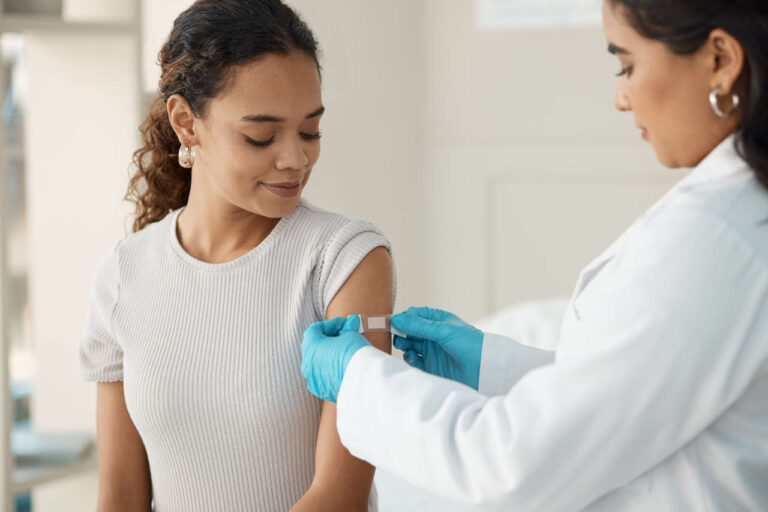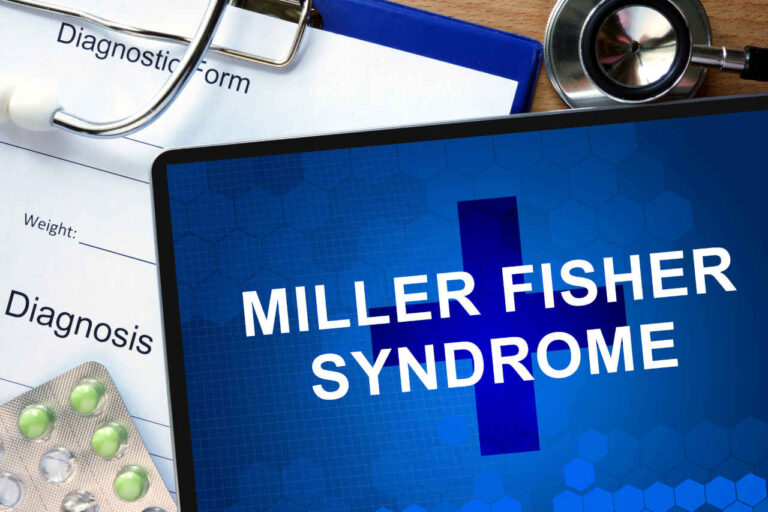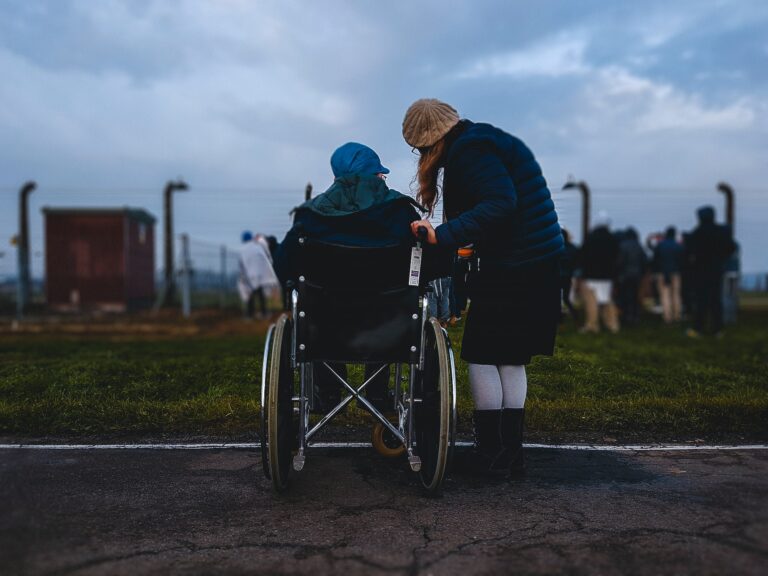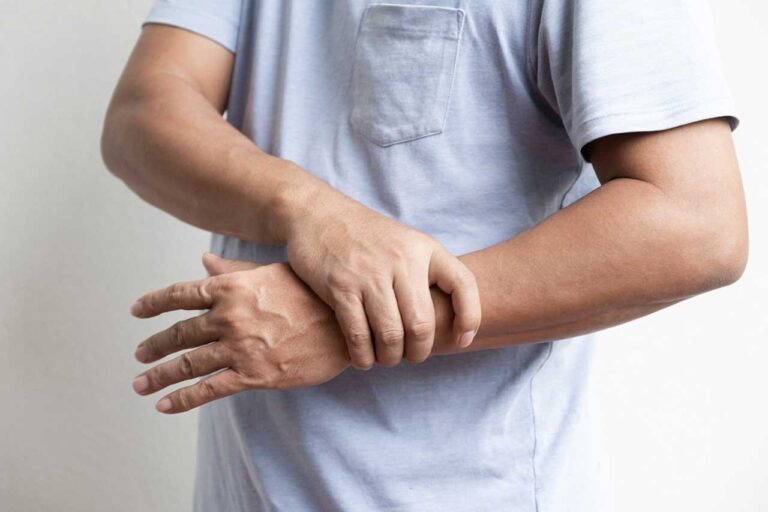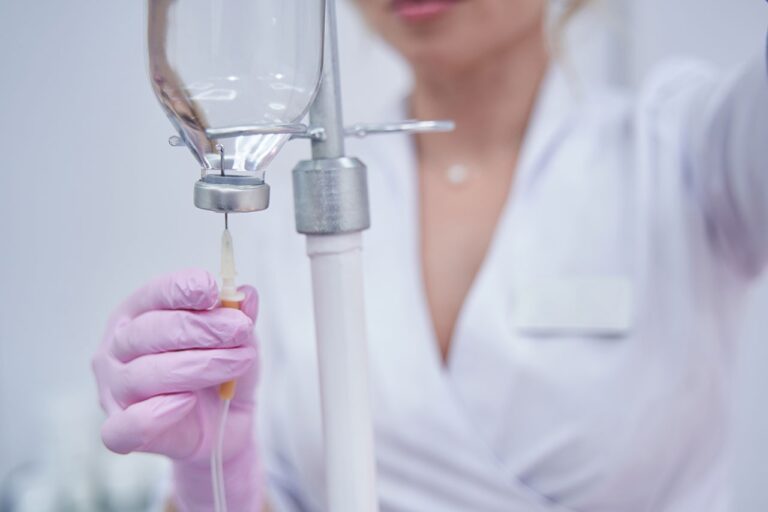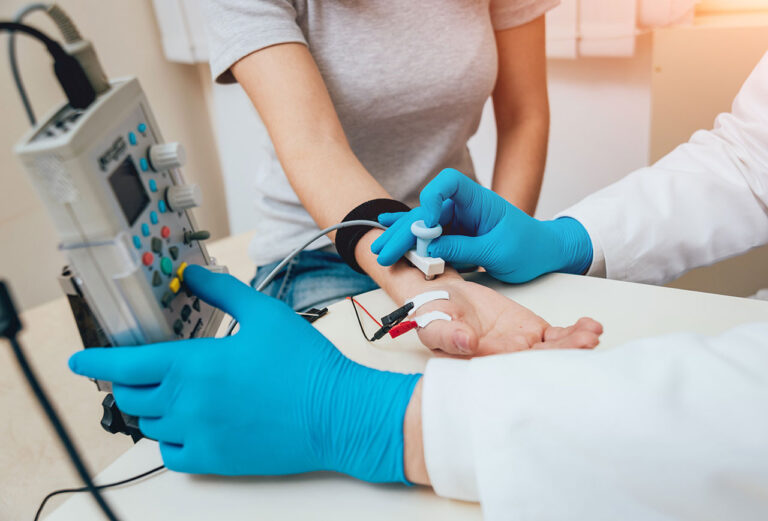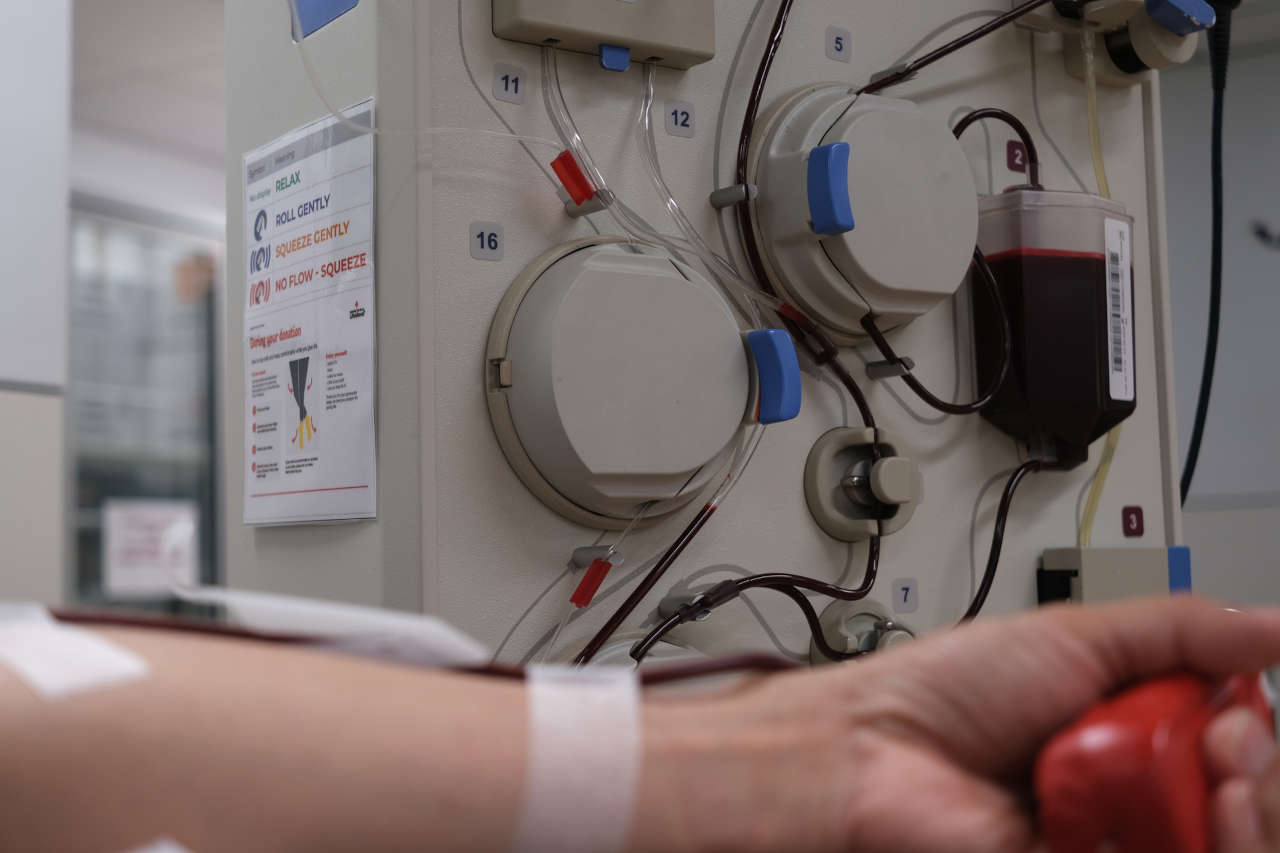
Considering plasmapheresis for Guillain-Barre syndrome? Get insights into its advantages, side effects, optimal dosage, and associated expenses.
Speak to a Specialist About Copay Assistance
Plasmapheresis is one of the two effective treatments for Guillain-Barre syndrome (GBS), with the other being IVIG [1]. Plasmapheresis can also be called plasma exchange (PE), and it involves the following steps:
- Withdrawal: Whole blood is removed from a large vein and sent to a special machine.
- Separation: The machine separates plasma (the liquid part of the blood) from blood cells.
- Replacement: Purified plasma or a plasma replacement fluid (like albumin) with the blood cells is infused back into the bloodstream.
In addition to GBS, healthcare providers may use plasmapheresis to treat other medical conditions, including:
- Myasthenia gravis (acute short-term treatment)
- Chronic inflammatory demyelinating polyneuropathy (CIDP)
- Hyperviscosity in hypergammaglobulinemia
- Thrombotic thrombocytopenic purpura
- Goodpasture syndrome
- Thrombotic microangiopathy
- Wilson disease
- Multiple sclerosis
- Autoimmune hemolytic anemia
- Stiff person syndrome
Plasmapheresis for Guillain-Barre Syndrome: Why Is It Done?
In GBS, the immune system produces proteins called (auto)antibodies that attack the peripheral nerves. Plasmapheresis removes these antibodies from the blood.
Plasmapheresis works best when it is initiated early, typically within 7 days after the characteristic symptoms appear. However, you can expect the benefits even when you start it up to 4 weeks after the symptoms appear [2].
According to the American Society for Apheresis (ASFA) Guidelines 2019, plasmapheresis [3]:
- Speeds recovery
- Reduces time on the ventilator
- Benefits individuals with both mild and severe disease
Plasmapheresis is also useful in relapses, which occur in up to 5% to 10% of individuals receiving plasmapheresis or IVIG [3].
Experts do not recommend combining plasmapheresis and IVIG in sequential order. Also, there is insufficient evidence to support the use of plasmapheresis after IVIG failure.
How Effective Is Plasmapheresis for Guillain-Barre Syndrome?
Plasmapheresis performed over a 10-day period helps filter out autoantibodies and other immune molecules responsible for the symptoms. It may also reduce recovery time by half.
According to a Cochrane Review, plasmapheresis is generally safe and superior to supportive care alone in adults with GBS [4]. Plasmapheresis-treated participants are more likely to attain full recovery as well.
It is unknown if plasmapheresis is effective in children younger than 12 and adults who receive treatment 30 days after the symptoms appear.
Side Effects of Plasmapheresis for Guillain-Barre Syndrome

Plasmapheresis may cause side effects, such as [5]:
- Abdominal pain
- Anxiety
- Chest pain
- Dizziness
- Fall in blood pressure (hypotension)
- Headache
- Nausea
- Vomiting
- Allergic reactions to plasma (chills, fever, rash, hives, shortness of breath, and high-pitched sound while breathing)
When you receive albumin as a replacement fluid, you are more likely to experience:
- Hypotension
- Nausea
- Vomiting
Get Financial Assistance
Dose of Plasmapheresis for GBS
The American Society for Apheresis (ASFA) Guidelines 2019 recommends exchanging 1 to 1.5 plasma volumes 5 to 6 times over 10 to 14 days [3]. However, additional treatments may be necessary in some people.
For adults:
- 1 plasma volume (PV) equals approximately 40 ml/kg
- 1.5 PV equals approximately 60 ml/kg
Plasmapheresis vs. IVIG: Which Is Better?
Both are equally effective in treating GBS, with few exceptions. Guillain-Barre syndrome (GBS) treatment should be tailored on a case-by-case basis.
Generally, IVIG (0.4 g/kg body weight daily for 5 days) is as effective as plasmapheresis (200–250 ml plasma/kg body weight in 5 sessions). Both have similar risks of side effects [6].
However, IVIG is often preferred because it is easier to access and administer.
How Much Does Plasmapheresis Cost?
Cost depends on various factors, including:
- Where you live
- The facility where the procedure is performed
- Whether your insurance plan covers the procedure
Ask your insurance provider if your plan covers plasmapheresis for GBS or if you need prior authorization.
REFERENCES:
- Leonhard, Sonja E et al. “Diagnosis and management of Guillain-Barré syndrome in ten steps.” Nature reviews. Neurology vol. 15,11 (2019): 671-683. doi:10.1038/s41582-019-0250-9
- Raphaël, J C et al. “Plasma exchange for Guillain-Barré syndrome.” The Cochrane database of systematic reviews, 2 (2002): CD001798. doi:10.1002/14651858.CD001798
- Schwartz, Joseph, et al. “Guidelines on the Use of Therapeutic Apheresis in Clinical Practice – Evidence‐Based Approach From the Writing Committee of the American Society for Apheresis: The Eighth Special Issue.” Journal of Clinical Apheresis, vol. 34, no. 3, June 2019, pp. 171–354. https://doi.org/10.1002/jca.21705.
- Raphaël, Jean Claude et al. “Plasma exchange for Guillain-Barré syndrome.” The Cochrane database of systematic reviews, 7 CD001798. 11 Jul. 2012, doi:10.1002/14651858.CD001798.pub2
- Stoian, Adina, et al. “Therapeutic plasma exchange as a first-choice therapy for axonal Guillain-Barré syndrome: A case-based review of the literature (Review).” Experimental and therapeutic medicine vol. 21,3 (2021): 265. doi:10.3892/etm.2021.9696
- Leonhard, Sonja E et al. “Diagnosis and management of Guillain-Barré syndrome in ten steps.” Nature reviews. Neurology vol. 15,11 (2019): 671-683. doi:10.1038/s41582-019-0250-9

